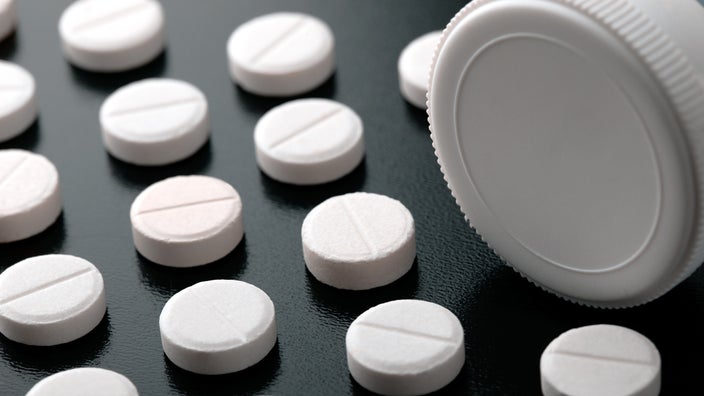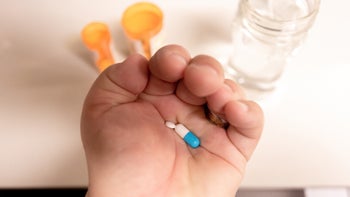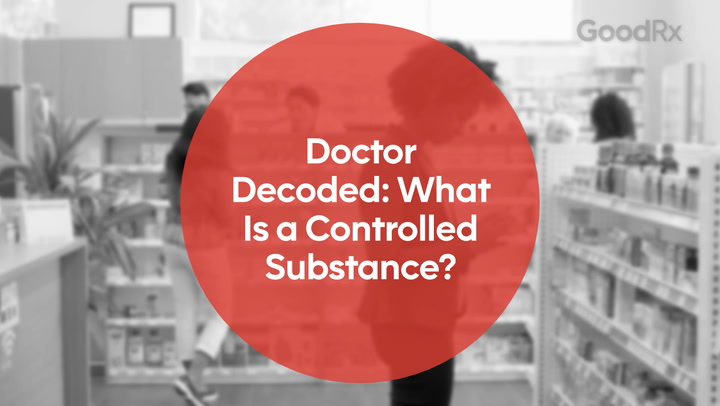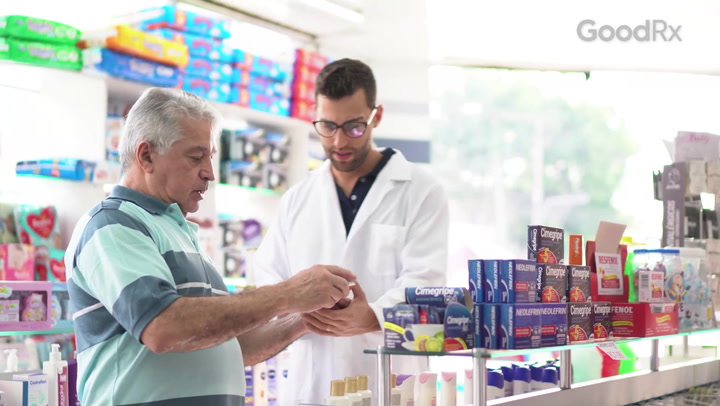
How to Recognize an Adderall Overdose
Key takeaways:
Adderall is a prescription stimulant medication used to treat attention-deficit hyperactivity disorder (ADHD) and narcolepsy.
An Adderall overdose (OD) is when the effects of Adderall become so intense they put your health and safety at risk. Adderall overdose symptoms can include fast heartbeat, overheating, and confusion.
Overdosing on Adderall can be dangerous. If you think someone is experiencing an Adderall overdose, call 911 or go to the emergency room immediately.
Table of contents

If you think you or someone else has overdosed, call 911 right away. Start cardiopulmonary resuscitation (CPR) if someone isn’t breathing or you can’t feel a pulse, and stay with them until the ambulance arrives.
Adderall is a prescription stimulant that’s FDA-approved for treating narcolepsy and attention-deficit hyperactivity disorder (ADHD). But despite its positive effects, it also comes with some risks — including the possibility for overdose. This can happen if a person misuses the medication or accidentally takes too much. And, like other stimulant overdoses, an Adderall overdose can be life-threatening.
Keep reading to learn more about Adderall overdose, how to avoid it, and what to do if one occurs. And, remember, an Adderall overdose is a serious situation. If you or someone else has overdosed, call 911 or get emergency medical assistance right away.
What is an Adderall overdose?
An Adderall overdose is when the effects of the drug are so strong that it puts your health at risk.
Search and compare options
Adderall interacts with chemicals in your brain, like dopamine, serotonin, and norepinephrine. These chemicals help relay messages throughout the body. When the normal signals are disrupted by large amounts of Adderall, the body can’t regulate itself. This can cause a variety of symptoms.
What are the symptoms of an Adderall overdose?
Adderall overdose symptoms are similar to other stimulants, such as methamphetamine, cocaine, and MDMA (3,4-methylenedioxy-methamphetamine). These symptoms include:
Physical restlessness
Irritability
Confusion
Mood swings
Anxiety and panic
Heavy breathing
Fast heart rate
High blood pressure
Shaking
Dizziness
Nausea or vomiting
High body temperature
Sweating
Seizures
People can die from stimulant overdose. Because of this, you should always take quick action to help someone showing signs of an Adderall overdose. Call 911 immediately or get to the nearest emergency department. Speedy decision-making could be the difference between life and death.
How much Adderall does it take to overdose?
It’s impossible to know just how much Adderall it’ll take to trigger an overdose. It depends on factors like:
How the medication is consumed
How long it’s been since your last dose
If you consumed alcohol or any other drugs
Your tolerance to the drug
Your prior history of overdoses
Your overall health
To avoid an overdose, you should only take Adderall if you have a prescription — and then only take the medication exactly as prescribed.
Who’s most at risk of an Adderall overdose?
If you have a prescription for Adderall, it’s generally safe to take it as directed.
People who misuse Adderall may have a higher risk for overdose. This risk may be especially high if you snort or inject Adderall, or mix Adderall with other substances.
How can you sober up fast from alcohol and drugs? Spoiler alert: It takes time.
Suspect an opioid overdose? An opioid overdose can be fatal. Learn what to do in the moment to potentially save a life.
Does drug use damage your brain? Here’s what you need to know about the risks of recreational drug use.
Taking Adderall that isn’t from a pharmacy also increases your risk for overdose. That’s because the substance may not be Adderall at all. Or it may be mixed with other substances, like opioids.
How common is Adderall overdose?
In 2022, about 1 in 3 of all drug overdose deaths involved a stimulant drug. Stimulant-related deaths were especially high in American Indian and Alaska Native people.
How do you treat an Adderall overdose?
First, it’s important to note that only medical professionals can treat an Adderall overdose.
Adderall overdoses can’t be directly treated with medicines. With some types of overdoses, medicines can quickly and effectively reverse the effects of the drug. But this isn’t the case with Adderall.
Instead, medical professionals treat the symptoms of the overdose. If you’re having heart symptoms, they’ll work to stabilize and regulate your heart’s rate and rhythm. When your breathing is affected, medical personnel can give you oxygen or other help with breathing. They can also help to cool your body down.
Many people also need medication to help calm symptoms, like anxiety, restlessness, and psychosis. They may need to stay in a safe and calm environment, so that they don’t accidentally hurt themselves or others.
How do you treat an overdose of Adderall mixed with other substances?
Sometimes people intentionally mix Adderall with other drugs. Adderall can also be laced with fentanyl, a very potent synthetic opioid. (More on this below.) A person with an overdose from Adderall mixed with other substances will need additional care.
Naloxone (Narcan), an opioid blocker, can reverse the symptoms of an opioid overdose — including from fentanyl. This medication is available as an injectable or a nasal spray. You don’t need a prescription to buy naloxone.
Be sure to let the medical professionals know about any and all other substances that could be involved in the overdose. They’ll need to treat each overdose, for each substance, in order to help the person recover safely.
Frequently asked questions
Adderall misuse is when you take Adderall in a way that’s not prescribed. This could mean:
Taking more of it — or more often — than prescribed
Snorting or injecting it
Using someone else’s pills
Mixing it with alcohol or other drugs
Some people misuse Adderall to help them study, stay awake, or perform better. But misusing Adderall can have serious consequences for your physical and mental health. It can also put you at risk for overdose.
A stimulant use disorder (stimulant addiction) is when you misuse stimulants to the point where it causes problems in your life. Fortunately, treatment can help. A good first choice is therapy, like cognitive behavioral therapy (CBT). Other options for treatment include 12-step programs, support groups, and residential facilities. There are even apps that can help.
If you need help finding treatment, contact the Substance Abuse and Mental Health Services Administration (SAMHSA) at 1-800-662-HELP (1-800-662-4357). You can also reach out to your primary care provider or another health professional for guidance.
Fentanyl is a man-made opioid that can be deadly. It’s about 50 times stronger than heroin and 100 times stronger than morphine. Even a tiny amount — like a few grains of sand — can cause an overdose.
Fentanyl is often mixed with other drugs — including fake Adderall pills. This means if you take Adderall that’s not from a pharmacy, it could potentially contain a deadly dose of fentanyl.
Diarrhea is a common side effect of Adderall, though it’s usually mild.
The bottom line
Prescription Adderall is a safe and effective drug used to treat ADHD and narcolepsy. But Adderall misuse can lead to overdose, and even death. To reduce risk, always take Adderall as prescribed by your healthcare provider. Never take Adderall that isn’t meant for you.
Why trust our experts?



If you or someone you know struggles with substance use, help is available. Call SAMHSA’s National Helpline at 1-800-662-HELP (1-800-662-4357) to learn about resources in your area.
References
Centers for Disease Control and Prevention. (2024). Stimulant overdose.
Facts Fight Fentanyl. (n.d.). Let’s reverse the overdose crisis.
FindTreatment.gov. (n.d.). Millions of Americans have mental and substance use disorders. Find treatment here. Substance Abuse and Mental Health Services Administration.
MedlinePlus. (2024). Opioid overdose.
National Institute on Drug Abuse. (2011). Misuse of prescription drugs research report. National Institutes of Health.
Substance Abuse and Mental Health Services Administration. (2023). SAMHSA’s National Helpline. U.S. Department of Health and Human Services.
Teva Pharmaceuticals. (2023). Adderall CII (dextroamphetamine saccharate, amphetamine aspartate, dextroamphetamine sulfate and amphetamine sulfate tablets) [package insert].
Was this page helpful?
Related Articles
Browse medications
View AllResearch prescriptions and over-the-counter medications from A to Z, compare drug prices, and start saving.




























